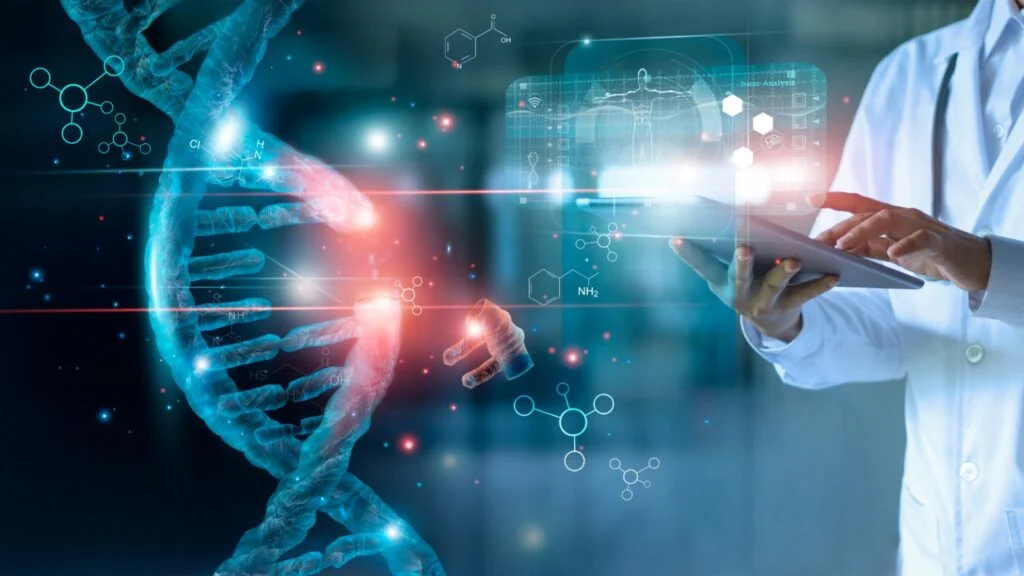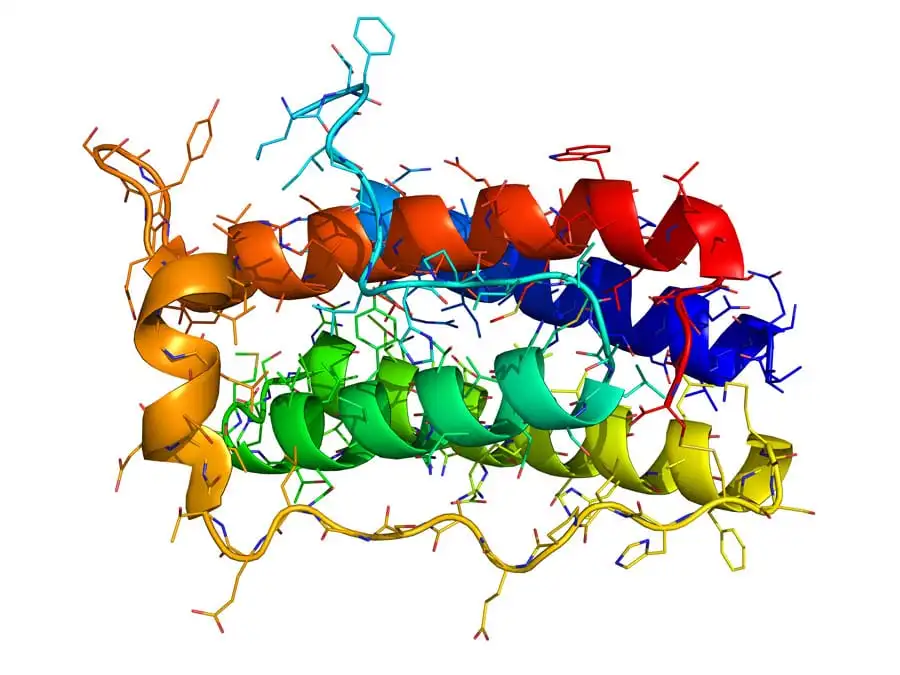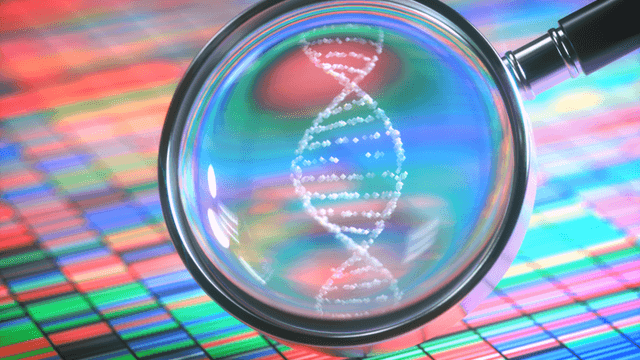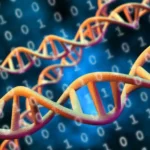Bioinformatics stands as a cornerstone in the modern science, serving as the vital bridge between biology and computational analysis. Its data-driven approaches are applied in various domains ranging from healthcare to biological research.
But why is bioinformatics important? Let’s embark on a journey to uncover its significance through real-life examples and understand its indispensable role in advancing our understanding of life itself.
What does Bioinformatics Do?
Bioinformatics is the marriage of biology and computational science. It harnesses the power of computers to analyze, interpret, and manage biological data, ranging from DNA sequences to complex biological systems. But why is bioinformatics important? Let’s delve deeper.

Why is Bioinformatics Important?
By integrating biological knowledge with computational techniques, bioinformatics empowers scientists to explore the mechanisms underlying biological processes, paving the way for transformative discoveries and shaping the future of medicine, agriculture, and environmental conservation.
1. Decoding the Genetic Blueprint:
Human Genome Project:
The Human Genome Project, a monumental endeavor, exemplifies the importance of bioinformatics. By sequencing the entire human genome, researchers unlocked a treasure trove of information about our genetic makeup. Bioinformatics played a pivotal role in processing and analyzing the vast amount of data generated by this project, leading to groundbreaking discoveries about human health and disease susceptibility.
Personalized Medicine:
Top companies in the bioinformatics industry enables personalized medicine by analyzing an individual’s genetic makeup to tailor treatments and medications. By understanding how genetic variations influence drug responses, healthcare providers can prescribe the most effective and safe treatments for each patient. This personalized approach revolutionizes healthcare delivery, optimizing outcomes and minimizing adverse effects.
2. Biological Systems:
Evolutionary Biology:
Bioinformatics facilitates the study of evolutionary relationships among species by analyzing DNA sequences. By comparing genetic similarities and differences, scientists can reconstruct evolutionary trees, elucidating the evolutionary history of organisms. Understanding evolution is crucial for various fields, from conservation biology to drug discovery.
Protein Structure Prediction:
Proteins are the workhorses of life, performing a number of functions essential for cellular processes. Bioinformatics and biostatistics tools can predict the three-dimensional structure of proteins based on their amino acid sequences. This knowledge is invaluable for understanding protein function and designing drugs that target specific proteins implicated in diseases.

3. Accelerating Scientific Discovery:
Drug Discovery and Development:
Bioinformatics expedites drug discovery by analyzing biological data to identify potential drug targets and predict the efficacy and safety of candidate compounds. By leveraging computational algorithms, researchers can sift through vast databases of molecular information to identify promising drug candidates for further experimental validation.
Crop Improvement:
In agriculture, bioinformatics aids in crop improvement by analyzing plant genomes to identify genes associated with desirable traits such as yield, disease resistance, and stress tolerance. By understanding the genetic basis of these traits, breeders can develop improved crop varieties through targeted breeding or genetic engineering, addressing global food security challenges.
4. Navigating the Era of Big Data:
Data Management and Integration:
With the advent of high-throughput technologies, biological data is generated at an unprecedented rate. Bioinformatics provides tools for storing, organizing, and integrating large datasets from diverse sources. This facilitates data sharing and collaboration among researchers, accelerating scientific discoveries and advancing our collective understanding of life processes.
Data Mining and Knowledge Discovery:
Bioinformatics employs data mining techniques to extract meaningful patterns and insights from complex biological datasets. By analyzing gene expression profiles, protein interactions, and metabolic pathways, researchers can uncover novel associations and biological mechanisms underlying disease states, paving the way for targeted therapies and precision medicine approaches.
5. Precision Medicine:
Bioinformatics enables precision medicine by analyzing tumor genomes to identify specific genetic mutations driving cancer progression. By understanding the molecular signatures of individual tumors, oncologists can prescribe targeted therapies that effectively inhibit cancer growth while minimizing side effects.
For example, the drug imatinib revolutionized the treatment of chronic myeloid leukemia by targeting the BCR-ABL fusion protein, a hallmark of the disease.
6. Infectious Disease Surveillance:
Bioinformatics plays a crucial role in infectious disease surveillance by analyzing pathogen genomes to track the spread and evolution of infectious diseases.
During the COVID-19 pandemic, bioinformatics tools were used to sequence and analyze the genomes of SARS-CoV-2 variants, providing insights into virus transmission dynamics and informing public health interventions such as vaccine development and deployment.
7. Environmental Conservation:
Bioinformatics contributes to environmental conservation efforts by analyzing DNA barcodes to identify and monitor species diversity in ecosystems. For instance, the Barcode of Life project uses DNA barcoding techniques to catalog and identify species based on their unique genetic signatures. This information is invaluable for assessing biodiversity, identifying endangered species, and guiding conservation efforts to protect ecosystems and species at risk.
8. Forensic Genetics:
Bioinformatics is utilized in forensic genetics to analyze DNA evidence and aid in criminal investigations. DNA profiling techniques, such as short tandem repeat (STR) analysis, are employed to match crime scene DNA samples with suspects or to identify missing persons. High-profile cases, such as the identification of victims in mass disasters or the resolution of cold cases, underscore the importance of bioinformatics in forensic science.

Conclusion:
In conclusion, the question of why is bioinformatics important is multifaceted and profound. From decoding the genetic blueprint of life to accelerating scientific discovery in various fields, bioinformatics serves as a cornerstone of modern biology and medicine. That’s why a career in bioinformatics offers a dynamic and rewarding path for those passionate about biology and computational science. With the demand for bioinformatics professionals on the rise, individuals can explore diverse career opportunities in academia, pharmaceuticals, biotechnology, and beyond.



